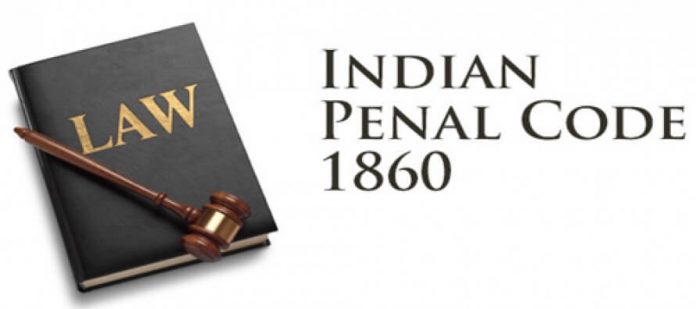This article is written by Sarthak Kulshrestha, a BA.LLB. student at Jagran Lakecity University, Bhopal. This article deals with Section 504 of IPC in detail and also discusses its relevant case laws.
This article has been published by Sneha Mahawar.
Table of Contents
Introduction
The legal system of India provides for the laws which are aimed at maintaining public tranquillity and contain provisions based on the principles of humanity and peace. The Indian Penal Code, 1860, contains the list of criminal offences and prescribes the punishment for each of them. All the offences listed under the IPC are divided into various categories and are put under separate chapters accordingly.
Chapter XXII of IPC is titled “Of Criminal Intimidation, Insult and Annoyance” and it covers Sections 503 to 510. This article discusses the offence stated under Section 504 of the IPC. Insult is a common word that we often heard and used without giving it a thought. But the intensity of this term is high enough to make it a criminal offence. In this article, the readers will get a detailed explanation of Section 504 and will come to know about the nature and punishment of the offence with the help of some relevant case laws discussed herein.
Explanation of Section 504 IPC
Section 504 of IPC states that whoever intentionally insults, and thereby causes provocation to any person, intending to cause provocation or knowing that such provocation would likely cause him to break the public peace, or to commit any other offence, shall be punished with imprisonment for a term up to two years, or with fine, or with both. Any person who provokes the other one by insulting him and thereby makes him cause a disturbance so as to ruin the peace of a public place or leads the insulted person to commit any other criminal offence will be punished under this Section.
The use of offensive language is quite usual among the people and a lot of times the offensive nature of the abusive words is not taken as the element of an offence to attract criminal liability. But when such language is used by a person to insult the other one intentionally, with the intention or knowledge that his words are likely to provoke the person so insulted to break the public peace, he may be penalised under Section 504.
Ingredients of Section 504 IPC
A person is supposed to commit an offence under this Section if his act fulfils the conditions constituting essential ingredients for the said offence. The ingredients of Section 504 are listed hereunder as:
- The accused has insulted the other person intentionally.
- The intention of the person should be such that it is likely to provoke the person who has been insulted.
- The accused has the knowledge that such provocation would cause the person to break the public peace or under the influence of which, he can commit some other offence.
The provocation and the knowledge that the act of provoking another person may lead him to do something which can break the public peace are the secondary ingredients. A person is provoked only when he has been insulted intentionally by some other person. This implies that the foremost ingredient of committing an offence under this Section is an intentional insult. The element of mens rea is necessary. Let us understand precisely what does the term “insult” mean under Section 504.
Meaning of insult under Section 504 IPC
This Section takes verbal disrespect into consideration to classify it as “insult”. A person is supposed to disrespect the other one intentionally in order to cause his insult. When it becomes so severe that it induces the insulted individual to cause the breach of public peace at large, this Section attracts the criminal liability of the person who insulted him. Any use of words by which someone can be offended is enough to constitute insult for the purpose of this Section. The abusive words or harsh language consisting of slang are sufficient to cause the contempt of the dignity of a person. It is a very general scenario where two individuals argue with each other and subsequently one of them starts using abusive language against the other one. This act is sufficient to charge that person under Section 504 who uses such language intentionally, as it constitutes insult according to the said provision.
It is noteworthy that the use of such abusive language has to be intentional. To establish an offence in this Section, the insult should be caused with the intention to provoke a person. A mere impolite way of addressing someone and casual talks between friends is not considered as an offence under this Section. If a person uses abusive language against someone but does not possess the intent to provoke him to break the public peace, he will not be held guilty of the said offence. Therefore, it has to be determined first, whether the person had the intention to insult the other one or not.
The question of determining the intention of insulting an individual depends on the facts of a particular case. The relation between the people, background, circumstances and whole situation is critically analysed by the Court to determine whether the insult was intentional or not. Once it is proved that the insult was caused intentionally to provoke the other person and break the peace of a public place, then the case can be brought under Section 504, as the main ingredient of intentional insult gets fulfilled.
Nature of Section 504 IPC
The nature of offences committed under this Section is non-cognizable. This implies that in a case in which Section 504 is imposed on an individual, a police officer cannot arrest him without a warrant and the permission of the Court has to be taken. Also, these offences are bailable in nature i.e the grant of bail is a matter of right and it is not a Court’s discretion. These offences are not so grave and hence their punishment is prescribed accordingly, which is imprisonment up to two years, or with fine, or both. An offence committed under this Section is compoundable, and thereby the complainant (the victim) enters into a compromise and agrees to drop all the charges against the accused. It is to be noted that only the person whose insult is done is allowed to compound the offence.
Procedure for the trial of a case filed under Section 504 IPC
If an offence has been committed under Section 504, the procedure for its trial will be the same as for any other criminal offence listed in the IPC. Starting right from filing an FIR under Section 504 to the judgement of the Court, there are several stages of the procedure for the trial of an offence under this Section. Let us understand through the steps discussed below with respect to how a case filed under this Section proceeds in Court.
Filing of the FIR
Once the accused is arrested by the police, an FIR has to be filed and the accused person is supposed to be produced before the Court of Magistrate within 24 hours of the arrest.
Final report by the police
After the police complete the investigation of the offence, it is bound to file a final report in the Court under Section 173 of the Criminal Procedure Code (CrPC). This report acts as a final submission of the investigation undertaken by the investigation agency. If any case is filed under Section 504 of IPC, all the on-sight evidence collected by the police will be included in the final report which will help the Court to determine whether the ingredients of the offence have been fulfilled or not.
The charge sheet includes the facts of the case and all the details of the investigation done by the police. During the investigation, whatever statements of the accused have been recorded are also contained in it and a copy of the FIR is attached with the charge sheet. On the filing of the charge sheet, the Magistrate takes cognizance of the matter under Section 190 of CrPC. The court can reject the charge sheet if it feels so, and discharge the accused or can accept it and frame the charges to post the case for trial.
Actions to be taken by the prosecution
Firstly, the prosecutor will make the statements that the charges which are imposed on the accused under the charge sheet are verbal abuse and intentional insult under Section 504 of IPC. To prove the accused guilty of the offence under the said provision, the prosecutor is supposed to support his statements with some evidence collected against the accused and statements recorded from the witnesses. However, the person arrested under Section 504 will have the right under Section 227 of CrPC to apply for discharge by proving that the charges put against him are false and very weak in order to proceed with the trial further.
Final arguments
According to Section 314 of CrPC, any party in a proceeding may, after the close of his evidence, address concise oral arguments and before he concludes the oral arguments, he may submit a memorandum to the Court stating clearly and under distinct headings, the arguments in support of his case and every such memorandum shall form part of the record. A copy of the same shall be immediately furnished to the opposite party.
The judgment
After having analysed the arguments put forth by both the parties, the judge decides the case and passes the decree of conviction or acquittal, as the case may be. In the case of Section 504, if the judge feels that the insult was done with the intent of provoking the other person and the person who insulted wanted to cause the breach of public peace or the commission of any other offence committed by the person so insulted, the judge may hold the person guilty under Section 504 and pass the conviction order in the judgement.
Relevant case laws
BR. Meena v. Mangal Das Chiman Lal Barot and Another (1987)
In BR. Meena v. Mangal Das Chiman Lal Barot and Another (1987), the appellant, in a fit of anger used harsh and abusive language against Mangal Das (the Assistant Station Master). He filed this complaint under Section 504 of IPC. In the trial, the prosecution could not prove the ingredients of the offence under Section 504 of IPC. The Court observed that mere utterance of some abusive words does not attract criminal liability under this Section. The ingredients of this Section are that there should be an intentional insult and such insult must give provocation to any person and he should have knowledge that such provocation will result in the breach of public peace or any other offence. The court held that since there was a lack of essential ingredients of this Section, the appellant was acquitted of the offence for which he was charged.
Ram Chandra Singh v. Nabrang Rai Barma (1998)
In the case of Ram Chandra Singh v. Nabrang Rai Barma (1998), the complainant stated that he complained about the boundary wall that was constructed by the accused because it was creating nuisance to the complainant as it was built over his roof. In reply to the complaint, the accused abused him with filthy language. The Orissa High Court held that, whether mere abuse that would amount to an offence under this Section is dependent on various factors such as the status of the parties, the nature of abuse and several other factors. The Court held that such words are normally used by the parties in petty quarrels and hence did not amount to an offence under this provision.
Philip Rangel v. Emperor (1931)
In Philip Rangel v. Emperor (1931), the accused was a shareholder in a bank and in a meeting of shareholders, it was proposed that he should be dismissed from their group. The accused lost his temper and reacted to the proposal against him by uttering abusive words. The Bombay High Court clarified that the words should amount to something more than ‘mere verbal abuse’. The language cannot be held to amount to intentional insult under this Section, especially when it is not directed to a particular individual.
Muhammed Ibrahim Maracayar v. Ismail Maracayar (1949)
In the case of Mohammed Ibrahim Maracayar v. Ismail Maracayar (1949), there was a father who was resident in Vellore and he wrote an insulting letter to his daughter and son-in-law. This act of the father was considered to be an offence under Section 504 by the complainant. The Court held that the reaction of the person insulted cannot be considered. An intentional insult should be such that it would lead to provocation, and subsequent breach of the peace would render the offender liable for the said offence.
Devi Ram v. Mulakh Raj (1962)
In Devi Ram v. Mulakh Raj (1962), the petitioner and his deceased father abused the respondent as he stopped them from passing by his house. The importance of intention of committing an offence under Section 504 was upheld in this case. It was held that it is not necessary that there must be an actual breach of peace for the application of this Section. The essential element is the intention of the offender to provoke the breach of the peace or he should have knowledge that his provocation is likely to cause the commission of an offence.
Surendra Prasad v. State of UP (2019)
In Surendra Prasad v. State of UP (2019), the accused along with a few of his friends went with the cows into the field at around 8 PM. The cows were pushed in such a manner that they started grazing the crops grown in the field. An informant saw them and tried to stop the accused and subsequently, the accused started abusing that person and threatened to kill him. Hearing the cries of the informant, his wife came to save him but the accused assaulted her also. There was an FIR filed against the accused under Section 504 and some other relevant sections of IPC. It is clear from the facts that the offence comes under Section 504 as the insult had taken place intentionally with the intent to provoke breach of peace. The accused insulted the informant with the intention to destroy the grown crops. The FIR also fulfils the ingredients of this Section. Finally, the court held that the accused was guilty of committing the offence under this Section.
Conclusion
Section 504 of IPC takes into account the intensity of the verbal disrespect so as to be sufficient to provoke the insulted person. The Courts in various judgments have noted that mere use of abusive words in a usual fight does not constitute an offence under Section 504 as it lacks the most important ingredient of intentional insult.
The insult has to be intentional in order to provoke the insulted person to break public peace or to commit any other offence. In simpler words, the act of intentionally infuriating or provoking someone to commit an offence and cause a breach of public peace is an offence under this Section. This means that the mere act of intentionally insulting an individual to provoke him is an offence irrespective of whether the breach of public peace has occurred or not. Thus, this Section safeguards the dignity of the citizens by assuring them that the substantive law consists of the provision which protects the self-respect and dignity of every individual living in our country.
References
- https://indiankanoon.org/doc/1569253/
- https://indiankanoon.org/doc/445276/
- https://lawrato.com/indian-kanoon/ipc/section-504
Students of Lawsikho courses regularly produce writing assignments and work on practical exercises as a part of their coursework and develop themselves in real-life practical skills.
LawSikho has created a telegram group for exchanging legal knowledge, referrals, and various opportunities. You can click on this link and join:
Follow us on Instagram and subscribe to our YouTube channel for more amazing legal content.
 Serato DJ Crack 2025Serato DJ PRO Crack
Serato DJ Crack 2025Serato DJ PRO Crack











 Allow notifications
Allow notifications


